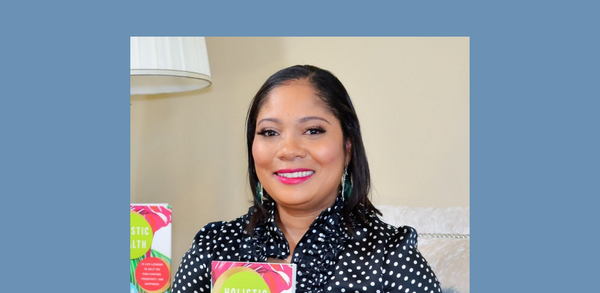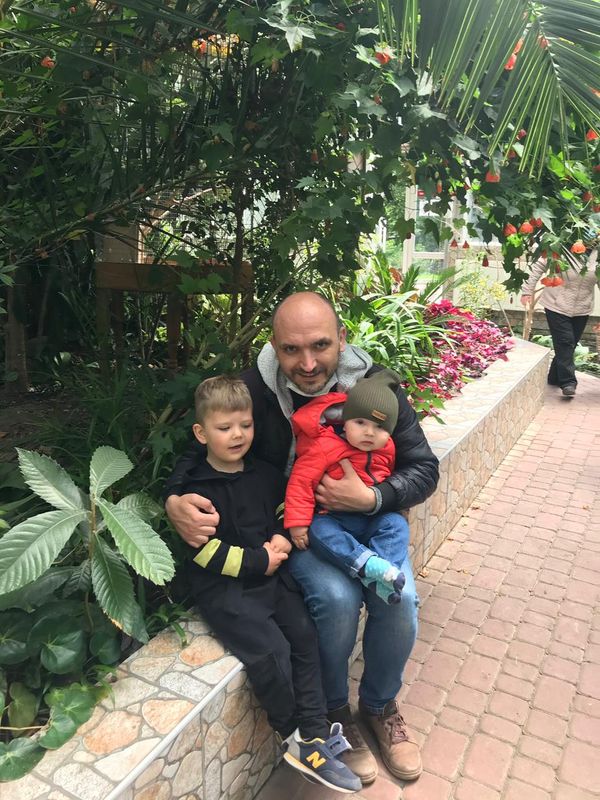Interview with Theranos Whistleblower and Biotech CEO, Tyler Shultz on Justice, Leadership, and Growing Up
His early 20s were laden with Hollywood movie-worthy scandal, family strife, and at the center of it, Theranos's Elizabeth Holmes. But Tyler Shultz paved his own way home.
By Victoria Oldridge
Background: Theranos, a privately held, Silicon Valley-based company – run by Elizabeth Holmes and COO, Ramesh "Sunny" Balwami -- touted its Edison machine as a breakthrough technology in diagnostics. Holmes raised $700 million from investors, with a peak valuation of $10 billion in 2014. Things changed quickly in 2015 as the company's product claims and revenues were proven false – a reckoning that was in large part, informed by Theranos whistleblower, Tyler Shultz, whose prominent grandfather, George Shultz (top Cabinet Official under Nixon and Reagan) was Director of the Board at Theranos.
We chat with Tyler as he reflects on aspects of his tumultuous Theranos days, and dig into a more jovial present day state of mind as he spearheads his own revolutionary medical technology.
Truffld: After you spoke initially off the record with the Wall Street Journal about Theranos's unscrupulous internal practices as well as their fradulent claims about Edison, Theranos's attorneys somehow found out – or led you to think that they knew – that you were speaking with a reporter. They stealthily showed up one evening at your grandfather's [George Shultz] house, which put into motion your first up-close experience with our legal system as they aimed to intimidate and bombard you with a flurry of legal documents that ultimately protected only Theranos. Between your background, heritage, and access to resources through your grandfather, you stood much more of a chance against a powerful company than the average person, but you still felt powerless.
Tyler: I was really disappointed to learn that the truth does not count for that much, and I knew with one hundred percent certainty that I was right. No doubt in my mind, I knew what I saw, and I felt like I was getting beaten down so hard because they [Theranos] could spend more money than I could. I'm much more privileged than an average American – my grandfather has held the most cabinet positions in United States history, so if you talk about someone with connections and financial stability, that's me; throw on top of that the fact that I'm white and male, and I still felt crushed. It made me realize that if I were an average American or minority, you have no chance, because whoever spends the most money wins the argument.
It's not truth versus some spin on reality, it's lawyer versus lawyer, and of course truth factors into that, but if you have a really good lawyer, you're probably going to win. Even though [at that time] it felt like the truth didn't matter at all, the truth does matter, it just took a really, really painfully long time for it to come out – in fact, it's still not over. Sunny's [former COO, Theranos] trial was just set for January, 2022, and I first raised concerns about this in 2014. [Elizabeth Holmes's trial is set for July, 2021.] I'll definitely be called as a witness for both trials.
Truffld: You were direct with your grandfather [who passed away recently at age 100] about your experience at Theranos for several years leading to the implosion of the company. He refused to acknowledge the facts and data you shared, and remained a staunch supporter of Elizabeth. In an emotional letter you wrote to him during the company's collapse, you stated that he must be continuing to stand by her because, to paraphrase: he either wasn't of sound mind, was in love with her, or too focused on the financial gain if Theranos succeeded. Did you ever uncover his reasoning?
Tyler: No, he didn't really answer that question. I think it was probably a mixture of all of those reasons. He was very close with Elizabeth, I think he really wanted to see the financial upside, and I think he felt some kind of responsibility because he brought in most of her board [including Henry Kissinger]; all of them were close friends of my grandfather. At the same time, he brought some of those people in after I had told him about what was going on, so it was like...[smiles, sways head].
Truffld: Based on an unusually rough start to your career at Theranos, the bright side is that you harnessed a wealth of knowledge in a short amount of time. Now that you're running your own biotech company, Flux Biosciences, how have you parlayed your experience at Theranos into the way that you lead and run the organization?
Tyler: I'm trying to take what I saw at Theranos and do the exact opposite, pretty much across the board. From a technology standpoint, Elizabeth didn't license any IP from Stanford. She dropped out at age 19 and then supposedly pulled this idea out of thin air and started inventing in a basement [laughing]. For us, a big difference first and foremost, is technology and peer review. My co-founder is a Stanford professor and he's been filing patents and publishing papers on this technology for 15 years. At Theranos even after Elizabeth invented Edison, she refused to have anything peer reviewed; they never published papers or had third- party validation. They just weren't part of a scientific community – to be successful in the field of health care, you need to be part of that to be successful and move forward.
From a company culture aspect, at Theranos, obviously everything was so secretive – I wasn't supposed to talk to the person who was working on the lab bench next to me about what I was working on which was absolutely crazy because if the person who's developing the antibody doesn't talk to the person who's developing the test who doesn't talk to the person who's validating the test, who doesn't talk to the person ramping-up production and patient samples, and so on, things are absolutely going to go wrong.
At Flux, we're not at the phase yet where we're ramping up tests to offer to the public, but the habits can start early. Our mechanical engineer and assay developer should absolutely be talking about what they're doing. I'm talking about fundraising or whatever I'm doing. Everyone can provide input and there's a lot of transparency, and healthy disagreements. At Theranos it felt like you had to have a religious belief that the technology worked, and anything that tells you otherwise is wrong and you can't say anything. It was a revolving door of employees. One guy I worked next to didn't even put in a two-week notice when he left – he bought a house in a different state, came in on a Friday, put in a normal day of work, left his badge on his bench, walked out and never came back. He basically disappeared. People were terrified there.
Truffld: Explain more about what you're doing at Flux currently – you started with testosterone testing and now you're working on female fertility?
Tyler: We're not commercial – no one's using the product yet. We have a really powerful technology – much better than an ovulation strip you'd buy over the counter at the drug store – and the value isn't in the test result itself, but in what the result can enable.
We're a magnetic sensing-based platform; every one of our sensors can be calibrated right before it's used. We're multiplexible which means that we can run a hormone test, for example, in replicates on our sensors, which means we can calculate a precision value for every single test that we run. We also have positive and negative controls on every test which is another checkpoint to make sure that everything is working correctly.
Ultimately, we want to be able to provide these results to physicians who can then make determinations about the patient's health. We want to partner with telehealth providers where a woman could purchase the test online, and she can identify her exact time of ovulation, but we'd also like to diagnose women who are having anovulatory cycles, where they may have a menstrual cycle but not actually produce an egg, and that's actually the number one cause of female factor infertility. It often takes a really long time to diagnose and costs a lot of money. Our method would identify women who are suffering with anovulation issues in a much more cost and time-efficient way, and connect them with a telehealth provider because luckily the really cheap, safe, and efficient way to stimulate ovulation that's been used for decades is Clomid. We'd like to be the first line of defense against the number one cause of female factor infertility.
Truffld: You've taken a circuitous path, and you had to learn so much in a really concentrated, hard way early on about the different paths life can take – you've come a long way in the last seven years since your post-Stanford carefree days, to the vortex of Theranos, to today.
Tyler: When I first graduated I had this idea that I would try to learn as much as I possibly could by the time I was thirty, and then I would kind of settle into some role or career path, and now I feel like I've learned way to0 much [laughing] by the time I'm thirty – I bit off way more than I could possibly chew. Sometimes I wish that I could give back some of the things that I learned and take back some of my 20s, but I'm grateful; things have definitely worked out for me.



